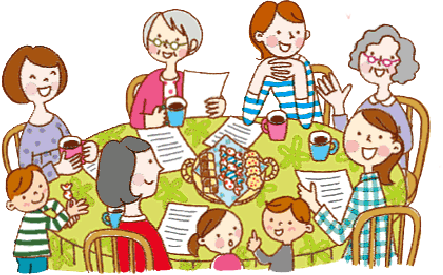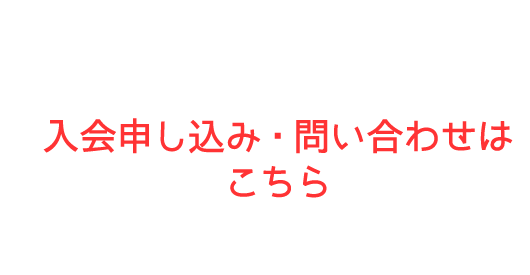Statement
Since its foundation in 1962, the New Japan Women’s Association (NJWA), with its 130,000 members all over Japan, has been working for the abolition of nuclear weapons, rights of women and children, and solidarity of women around the world for peace.
Reduction of Social Security Spending Increasing Disparities and Poverty
In Japan, women’s poverty has become a major social issue, and the situation is particularly grave among children, single-female-parent families, and elderly women.
In order to assist those children who are not able to eat sufficiently or have to eat alone, women’s organizations like the New Japan Women’s Association, civil society groups and volunteers have set up more than 2,000 “Children’s Cafeterias” throughout Japan. Behind this is the reality that the poverty rate for single-mother families exceeds 50 percent.
Sixty percent of working women in Japan work in non-regular jobs, women’s wage is half of men’s, and almost half of them earn less than 2 million yen (17,770 in US dollars) a year. The male-female pay gap results in their pension gap. Without a guaranteed minimum pension system in place, poverty is a critical issue for elderly women. Cuts in pension and welfare benefits, coupled with the raise in health and nursing-care insurances premiums and charges for services weigh heavy on the elderly, leaving 54 percent of older women living alone in poverty. Low wages and low pensions prevent women from becoming economically independent. On the other hand, big corporations with more than 1 billion yen (8.82 million in US dollars) in capital increased their internal reserves to a record 425.8 trillion yen (3.78 trillion in US dollars), and we are calling on these corporations to fulfil their social responsibility by using their huge profits to raise wages of workers.
Background to the rise in poverty and widening income gap is the fact that neoliberal “structural reforms” have been carried out, with deregulation and privatization being promoted in the name of “more efficiency” and “necessary services at one’s own expenses”, which has resulted in reduced social services including childcare, nursing care and medical care programs. The burden of childrearing and nursing care is more and more imposed upon the family, particularly women, and there has been a rapid increase in the number of those leaving their jobs because they have to take care of their sick or elder family members. As social security is the right of the people recognized by the Constitution, we are calling on the government to improve social services on its own instead of shifting the responsibility to the individuals.
The New Japan Women’s Association members all over Japan send requests to Diet members, asking them to oppose the bills for adversely revising the social security system every time such bills are submitted to the Diet. They also bring the actual conditions of those engaged in nursing care, medical care and child care, together with urgent desires of those using or in need of these services to local municipalities and government, calling for better services.
Life Is the First Priority: Money for Disaster Prevention, Air Conditioning for Schools, and Welfare
In summer 2018, Japan hit the record-high temperature amid severe heat wave, as declared “natural disaster” by the weather agency. In classrooms, most of which lack air conditioners, children’s health was at great risk. Apart from the heat wave, Japan experienced multiple disasters, enduring weeks of unanticipated and unprecedented torrential rains, typhoons and earthquakes, which caused immense damage to people’s living and local economy of the affected areas. With such messages as “Life Is the First Priority” and “Protect Children”, the New Japan Women’s Association throughout the country requested municipalities to install air conditioners in classrooms as well as to review the disaster prevention measures. The Association also petitioned the Education Ministry calling on the State to take responsibility to deal with the situation and succeeded in having the government to allocate a supplementary budget of 935.6 billion yen (8.75 million in US dollars) to assist municipalities to equip classrooms with air-conditioning.
Since 1980, the New Japan Women’s Association has carried on the movement demanding, “Cut Military Spend and Use the Money for Better Living, Welfare and Education”. Now that more and more countries are signing the Treaty on the Prohibition of Nuclear Weapons adopted by the United Nations in July 2017 towards its ratification, and that a positive change is taking place in the Korean Peninsula with efforts are being made to realize peace through dialogues, the Association is committed to strengthen the movement more than ever.
For a Society without Sexual Harassment, Women Take Actions
As #MeToo movement spread worldwide, women in Japan, too, protested with anger against sexual harassment and sexist words and deeds of politicians and bureaucrats, and against the recent revelation that one of the top medical universities had discriminated female applicants in entrance exams and that multiple institutions had done the same. Women are standing up to take actions for transforming the society into one without sexual harassment and gender-based discrimination.
Japan dropped to a record-low of 114th among the 144 countries in the Global Gender Gap for 2017, remaining at the bottom of the developed nations. The major cause for this is the under-representation of women in politics and their low economic status due to the unshrinking gender pay gap and the small number of women in management positions. It is in this context that more and more women start unleashing their long pent-up rage and frustration.
The New Japan Women’s Association released urgent proposals for “Creating a Society without Sexual Harassment”, calling on the entire society to share the recognition that sexual harassment constitutes a grave human right’s violation, and to build a consensus on its elimination including through legislation to prohibit sexual harassment and training. The Association members at local level are bringing the proposals to municipal authorities and local governments to have talks with them. Our activities on the ground include visits to convenience stores in each community with requests to stop selling pornographic magazines, in which women are solely sexualized. A local chain and some stores have responded by suspending the sales of such magazines.
Women’s empowerment and gender equality are essential to achieving the Sustainable Development Goals, the common challenge for the international community. The New Japan Women’s Association will continue acting calling for the promotion of social security and services to guarantee decent lives and work for all, with the primary responsibility taken by the State; for reviewing “neoliberal” economic policies, which have widened inequality and poverty, from gender and human rights perspectives; and for moving the money from military spending to investment in people’s lives and living.

.png)



